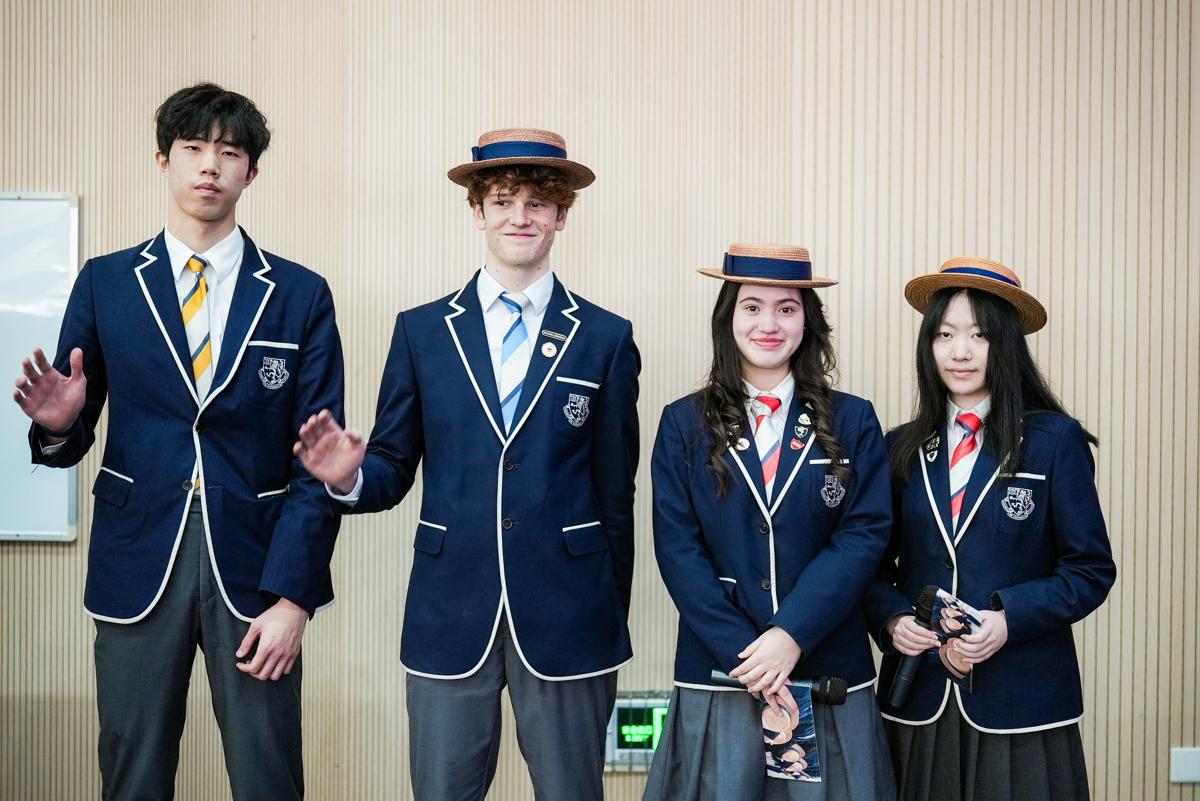
Students at Harrow International School Shanghai. [Photo provided to chinadaily.com.cn]
As China continues to open up to the world, there is constant demand for high-quality international education, which is expected to expand steadily in the country, according to top executives at Harrow International School Shanghai.
Established in 2016 as the fourth overseas Harrow school, Harrow Shanghai remains committed to the Chinese market and optimistic about its future expansion here. Its confidence was proved by a new US university pathway program launched Friday, which is designed to offer students a broader range of academic opportunities and global development pathways.
Known for its core A-Level curriculum, the school aims to introduce additional offerings tailored to students aiming for US university admissions, including Advanced Placement (AP) courses, SAT preparation and courses on American culture, politics and leadership. This move also makes it the first fully international school in the city to implement the "UK-US integrated curriculum" model, allowing students to engage with both educational systems simultaneously.
"We started preparing for the program since last September. We have been talking to parents and children a lot about where they want to go in the future and were looking for something additional to add to our curriculum to broaden their education and offer them more different alternatives. While retaining our British and bicultural identities built in China, we are ready to start teaching the (new) courses in September," said Alexander Reed, headmaster of Harrow Shanghai, during an interview with China Daily following the program's launching ceremony.

Students at Harrow International School Shanghai. [Photo provided to chinadaily.com.cn]
Standing on the frontier of China's opening up, Shanghai's Pudong New Area, where the school is located, is home to a large number of foreign companies and institutions, as well as expats and their families. It has brought strong demand for quality international education. Despite the influence of the pandemic, there were still nearly 12,000 foreign students at the basic education level in Pudong last year, with over 7,000 in international schools and more than 500 currently in Harrow Shanghai, according to Ding Lizhong, chief inspector of schools of Pudong Education Bureau.
Reed pointed out that even though the international education sector is "challenging" at the moment, he still saw a "steady and bright future of expansion and development" in the Chinese market.
"We have been doing well and will continue to grow here, especially in an area of Shanghai that is also growing and developing. I would suggest that we will stay fairly steady, with consistency and small amounts of growth in the next few years. I don't think it (international education) will shrink massively in cities like Shanghai," he said, adding that positive change may also come along as the Chinese government is actively encouraging people to come to China and seeking to build strong relationships with other nations.
Rosanna Wong, chairman of Asia International School Limited (AISL) that runs 14 schools around Asia, shared similar sentiments as Reed, saying she is "confident" about the international education landscape in China.
"International education is always in demand, because China's policy is very clear that they will continue to open up to the world. With these policies ongoing, there's always demand for international education where you can offer parents an option or an alternative to bring their children abroad. I think the world needs to unite. We welcome people overseas to come to China, and we also expect that there will be people going overseas to study. So, I think that the demand (for international education) will be there and will continue, and we're committed to good quality international education," she said.
She particularly highlighted Shanghai as a "very important city in China", which has been playing a vital role in the nation's economic development as a financial center over the past three decades. With the city in such a position, it needs a lot of talents from various sectors and from both home and overseas, generating a demand for international education of good quality and talents prepared for the future.
Reed noticed that Chinese education has always evolved with high standards in many aspects, and Shanghai has an enormous international education market. Some of the interest in international education is driven by parents wanting their children to have a well-rounded education as much as possible, and some are driven by a genuine desire to offer their children more opportunities and options to add to the international dimension.
"There are stereotypes of parents (in China) that they are driven by academic results the whole time, but that's not what we see. We see parents who want opportunities for their kids to be happy," he added.